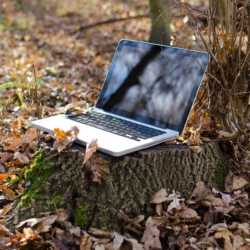September 30, 2020
Search Results for: employees
September 29, 2020
Workers calls for more action on diversity and inclusion
by Neil Franklin • News
 Almost half (46 percent) of Britain’s workforce think their employer could do more when it comes to diversity, with 58 percent of employees from Black and Minority Ethnic (BAME) backgrounds agreeing, according to a report from Culture Shift. Despite 79 percent of employees confirming that working somewhere with a diverse workforce is an important factor for their happiness at work, 40 percent think diversity seems like less of a priority in the workplace currently, with 50 percent stating it should be more of a priority. More →
Almost half (46 percent) of Britain’s workforce think their employer could do more when it comes to diversity, with 58 percent of employees from Black and Minority Ethnic (BAME) backgrounds agreeing, according to a report from Culture Shift. Despite 79 percent of employees confirming that working somewhere with a diverse workforce is an important factor for their happiness at work, 40 percent think diversity seems like less of a priority in the workplace currently, with 50 percent stating it should be more of a priority. More →
September 29, 2020
Flexible working is crucial for many older workers
by Jayne Smith • Flexible working, News, Working lives
 The Centre for Ageing Better and Timewise have launched a toolkit to help employers maximise the benefits of flexible working. Experts at the two organisations say that enabling flexible working is particularly crucial in retaining the skills and talents of workers aged over 50, enabling them to manage health needs and caring responsibilities as well as achieve a better work-life balance. More →
The Centre for Ageing Better and Timewise have launched a toolkit to help employers maximise the benefits of flexible working. Experts at the two organisations say that enabling flexible working is particularly crucial in retaining the skills and talents of workers aged over 50, enabling them to manage health needs and caring responsibilities as well as achieve a better work-life balance. More →
September 28, 2020
People still love the office, but would prefer one closer to home
by Neil Franklin • Flexible working, News
 A new survey from IWG claims that commuting remains the biggest barrier to the return to office life post-Covid, with only 8 percent of British workers now prepared to travel more than an hour to get to work. In the short term, workers are set to follow Government guidance by continuing to work from home, in the longer-term, six in ten (57 percent) want an office that is closer to home and an even greater proportion (77 percent) say that a more conveniently located office is a must-have for their next job move. More →
A new survey from IWG claims that commuting remains the biggest barrier to the return to office life post-Covid, with only 8 percent of British workers now prepared to travel more than an hour to get to work. In the short term, workers are set to follow Government guidance by continuing to work from home, in the longer-term, six in ten (57 percent) want an office that is closer to home and an even greater proportion (77 percent) say that a more conveniently located office is a must-have for their next job move. More →
September 24, 2020
Workers long for clarity in their relationship with employers
by Jayne Smith • News, Wellbeing, Working lives
 Employees are longing for purposeful and visible changes to increase safety measures in the office, according to a new survey of 2,000 people from NELSON Worldwide. This is top of people’s minds in order to assure that re-entry in the workplace is safe, according to the firm. Whether this is carried out by means of wayfinding, increased sanitation protocols, or direct implementation of distancing in workstations, staff are eager to see the action carried out. The survey concludes that 83 percent of employees have rated physical safety measures to be extremely or very important. More →
Employees are longing for purposeful and visible changes to increase safety measures in the office, according to a new survey of 2,000 people from NELSON Worldwide. This is top of people’s minds in order to assure that re-entry in the workplace is safe, according to the firm. Whether this is carried out by means of wayfinding, increased sanitation protocols, or direct implementation of distancing in workstations, staff are eager to see the action carried out. The survey concludes that 83 percent of employees have rated physical safety measures to be extremely or very important. More →
September 24, 2020
Information is harder to access while working remotely
by Jayne Smith • Knowledge, News, Working lives
 New research from Sinequa claims that finding information when working remotely remains a challenge for UK enterprise workers. Alongside these challenges, Sinequa’s research claims that knowledge workers in large enterprises now search for information 8 times a day, spending over 5 minutes each time carrying out the search – an average of 44 minutes a day spent searching for information, per employee. More →
New research from Sinequa claims that finding information when working remotely remains a challenge for UK enterprise workers. Alongside these challenges, Sinequa’s research claims that knowledge workers in large enterprises now search for information 8 times a day, spending over 5 minutes each time carrying out the search – an average of 44 minutes a day spent searching for information, per employee. More →
September 24, 2020
Under-35s face a confidence crisis at work
by Jayne Smith • News, Wellbeing, Working lives
 Under-35s are in the midst of a professional confidence crisis, with work seen as a place where they feel isolated and afraid to speak out, claims research carried out by culture change business Utopia. The study which interviewed over 2,000 respondents across the UK, claims that workers under the age of 35 feel immense pressure to hold a standard of professionalism that shuns emotion and favours traditionally masculine behaviour, all the while juggling responsibilities at home. More →
Under-35s are in the midst of a professional confidence crisis, with work seen as a place where they feel isolated and afraid to speak out, claims research carried out by culture change business Utopia. The study which interviewed over 2,000 respondents across the UK, claims that workers under the age of 35 feel immense pressure to hold a standard of professionalism that shuns emotion and favours traditionally masculine behaviour, all the while juggling responsibilities at home. More →
September 23, 2020
Remote working set to triple in the post-COVID world
by Jayne Smith • Flexible working, News, Working lives
 A new survey from XpertHR, claims that the average percentage of employees remote working at least part of the time is projected to nearly triple from 12 percent before the COVID-19 pandemic to 30 percent after the pandemic. The survey Employer Response to COVID-19 was completed by 835 US employers. More →
A new survey from XpertHR, claims that the average percentage of employees remote working at least part of the time is projected to nearly triple from 12 percent before the COVID-19 pandemic to 30 percent after the pandemic. The survey Employer Response to COVID-19 was completed by 835 US employers. More →
September 22, 2020
Millions of working days lost each year through poor mental health
by Jayne Smith • News, Wellbeing
 More than 11 million UK working adults have taken time off work for poor mental wellbeing, costing businesses an estimated 40 million working days each year, claims new research from healthcare provider, Benenden Health. As many as a third (35 percent) of UK employees took time off work due to poor mental health in 2019, with workers absent for between two and five days on average, costing UK businesses an estimated 4o million individual days of work. More →
More than 11 million UK working adults have taken time off work for poor mental wellbeing, costing businesses an estimated 40 million working days each year, claims new research from healthcare provider, Benenden Health. As many as a third (35 percent) of UK employees took time off work due to poor mental health in 2019, with workers absent for between two and five days on average, costing UK businesses an estimated 4o million individual days of work. More →
September 22, 2020
New demand for office space indicates mass `return to work`
by Jayne Smith • Facilities management, News, Property, Working lives
 Water cooler chats and the buzz of office life is set to remain on hold until at least the New Year as businesses look to restructure their office needs from January. A government drive to see more office employees return to work in the workplace has seen a rise in commuters to more than 60 percent according to the latest figures from the Office for National Statistics. More →
Water cooler chats and the buzz of office life is set to remain on hold until at least the New Year as businesses look to restructure their office needs from January. A government drive to see more office employees return to work in the workplace has seen a rise in commuters to more than 60 percent according to the latest figures from the Office for National Statistics. More →
September 21, 2020
Time to get on board with the psychological effects of working from home
by Jörg Bakschas • Comment, Flexible working, Wellbeing
 It almost goes without saying that this year has seen a rapid shift towards remote working, with many companies now moving to a flexible working model. From a business perspective, many employees are proving that they can still get their work done working from home. But what is the psychological impact of this? And are companies doing enough to research and prevent any negative psychological effects of remote working? More →
It almost goes without saying that this year has seen a rapid shift towards remote working, with many companies now moving to a flexible working model. From a business perspective, many employees are proving that they can still get their work done working from home. But what is the psychological impact of this? And are companies doing enough to research and prevent any negative psychological effects of remote working? More →


























September 23, 2020
The stage is set for the next phase of working life
by Mark Eltringham • Comment, Flexible working, Technology, Wellbeing, Working lives